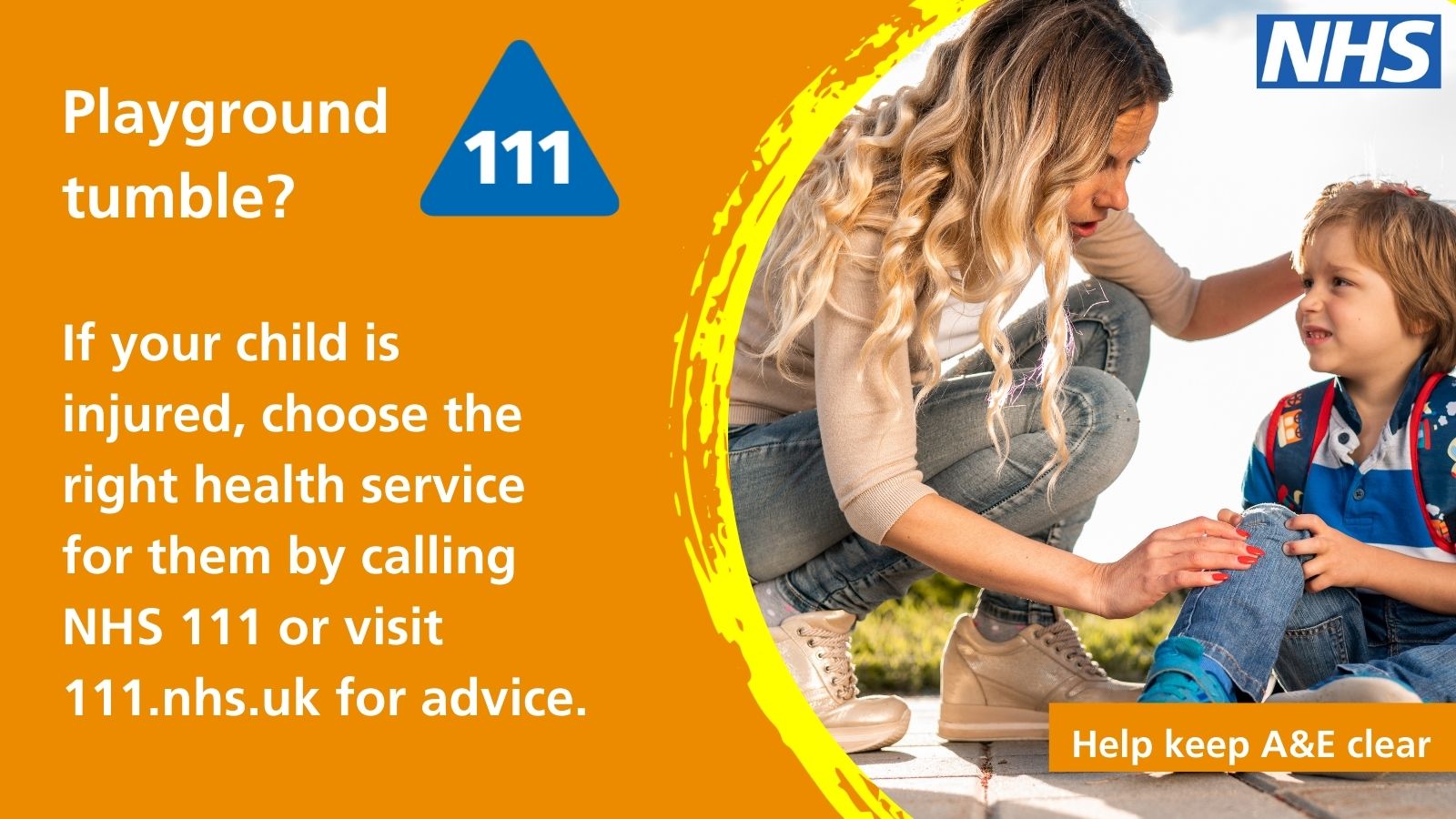Engagement - News and Updates
Think 111 First Engagement
Think 111 First engagement
In 2021, we asked you to share your thoughts in a survey on 'Think 111 First', a campaign to change the way we access urgent healthcare services in Somerset.
In December 2020, a new way of accessing urgent healthcare services launched across the country. The 'Think 111 First' national campaign encouraged people to contact 111 before attending A&E, to ensure they could safely receive the right care, in the most appropriate setting. Whilst also relieving pressure on our hospital emergency departments.
Using a single Clinical Assessment Service (CAS), healthcare professionals are able to advise patients on the most appropriate healthcare service for their needs - potentially avoiding an unnecessary trip to hospital.

What we asked -
The survey asked five questions on participants knowledge, understanding, and experience of using the NHS 111 Service.
- What do you know about the NHS 111 Service? Can you explain how it works?
- What did you expect to happen after called 111? Were you satisfied with the service?
- How would you explain urgent or emergency care?
- What would encourage you to call 111 or go online?
- What do you think about the idea of booking slots before attending an Emergency Department?
What you said -
We received 46 responses that have now been considered and analysed, along with feedback from Somerset’s voluntary and community sectors.
Below is a sample of some of the key themes and trends identified:
- Most respondents referred to calling 111, but only a few knew about NHS 111 online
- There is a wide range of understanding for whether to contact NHS 111 in emergency, urgent and non-urgent situations
- Many respondents felt that NHS 111 was to be used when you could not make a GP appointment or needed treatment ‘Out of Hours’
- Respondents generally understood that NHS 111 could refer you to A&E, arrange an ambulance, or ask you to contact a GP
- Respondents referred to being asked a large number of questions which restricted effective communication
- The role of the call handler was seen as important in the experience of telephoning NHS 111
- Overall, there was a largely positive response to the idea of booking A&E appointment slot. As long as there is an effective clinical priority system and bookings did not lead to delays, then respondents felt it would work
- Some respondents felt that the ‘emergency’ department should be for emergencies only and this new system did not fit well with that
- Concerns were shared that patients may book appointments but their condition may worsen as they wait
- Concerns were shared that a new system would lead to longer delays and a situation where many more patients turned up to A&E
- Some respondents recognised that patients were safer and more comfortable waiting in their home.
- Most respondents referred to calling 111, but only a few knew about NHS 111 online
- Respondents referred to being asked a large number of questions which restricted effective communication
- Overall, there was a largely positive response to the idea of booking A&E appointment slots.
What we did -
- Created tailored messaging for our community
- Designed key messages for the 'Think 111 First' communications campaign
- Used this information to support the creation of a focus group who will continue to develop services.


